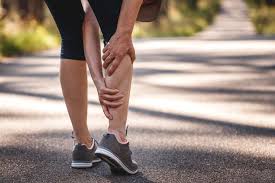Muscle stiffness is something many people in New York experience, whether it’s from long hours at work, standing during commutes, sitting in front of a computer, or even exercising without proper stretching. Stiff muscles can make daily activities uncomfortable and sometimes painful, especially when they affect your neck, shoulders, or lower back.
In this blog, we’ll discuss what causes stiff muscles, effective home remedies, treatment options, and when to see a doctor. By the end, you’ll have practical tips to help you treat stiff muscles and keep your body moving freely. For patients in United States struggling with stiff muscles, one medicine that treat stiff muscle is pain o soma can be a cost effective option when source through trusted online pharmacies.
Understanding Stiff Muscles
Stiff muscles happen when your muscles feel tight and movement becomes more difficult. Sometimes stiffness comes with pain, but not always. The most common areas affected are the neck, shoulders, back, and legs.
For many New Yorkers, muscle stiffness is often linked to lifestyle long subway rides, carrying heavy bags, or sitting in an office all day without stretching.
Common Causes of Stiff Muscles
Knowing the cause is the first step to finding relief. Some common reasons for muscle stiffness include:
- Poor Posture – Sitting hunched over a laptop or slouching on public transport can strain muscles.
- Lack of Movement – Staying in one position for too long can make muscles tight.
- Overuse – Intense workouts or heavy lifting can cause muscles to become sore and stiff.
- Stress – Emotional tension often causes physical tightness, especially in the neck and shoulders.
- Cold Weather – New York winters can cause muscles to tighten up when exposed to the cold.
- Dehydration – Low water intake affects muscle flexibility and function.
How to Relieve Stiff Muscles at Home
If you have mild stiffness, these self-care tips can help:
1. Apply Heat or Cold
- Heat therapy improves blood flow and relaxes muscles. Use a warm towel, heating pad, or take a warm shower.
- Cold therapy reduces inflammation and numbs discomfort. Use an ice pack wrapped in a cloth for 15–20 minutes.
For many people, alternating between heat and cold works best.
2. Gentle Stretching
Stretching increases flexibility and reduces tightness. Try these simple stretches:
- Neck rolls – Slowly roll your head in circles to loosen neck muscles.
- Shoulder shrugs – Raise and drop your shoulders several times.
- Hamstring stretch – Sit with your legs extended and reach toward your toes.
Stretching is especially helpful for New Yorkers who sit at a desk all day or spend hours in transit.
3. Massage Therapy
A gentle massage can increase blood circulation and relax muscle fibers. You can:
- Book a session at a licensed massage therapy center in NYC.
- Use a foam roller or massage ball at home.
4. Stay Hydrated
Muscles need water to function well. Keep a reusable water bottle with you during the day, especially in the summer or when working out.
5. Light Exercise
While rest is important, light movement like walking, yoga, or swimming can prevent muscles from becoming even stiffer. Low-impact activities improve blood flow and speed up recovery.
6. Over-the-Counter Relief
Pain relief creams or gels can be applied to sore areas. If stiffness is due to overexertion, non-prescription pain relievers may help, but they should be used as directed.
Professional Treatments for Stiff Muscles
If home remedies aren’t enough, a healthcare provider may recommend:
- Physical Therapy – Guided exercises to improve flexibility and strength.
- Prescription Muscle Relaxants – For severe cases, doctors may prescribe medicines to reduce muscle tightness.
- Trigger Point Injections – Injections that target specific areas of tightness.
Preventing Stiff Muscles
Prevention is always better than cure. To reduce your chances of experiencing stiffness:
- Take short breaks every hour if you work at a desk.
- Use ergonomic furniture that supports proper posture.
- Warm up before workouts and cool down afterward.
- Keep stress levels in check through meditation or breathing exercises.
- Dress warmly during cold New York winters to protect muscles from tightening.
When to See a Doctor
Seek medical help if:
- Stiffness lasts more than a few days.
- It is accompanied by severe pain, swelling, or weakness.
- You have difficulty moving the affected area.
- Stiffness follows an injury.
Final Thoughts
Stiff muscles can be uncomfortable, but in most cases, they can be managed with simple lifestyle changes, self-care, and good posture habits. Whether you’re a busy professional in Manhattan, a student in Brooklyn, or an athlete training in Queens, taking steps to treat stiff muscles early will help you stay active and pain-free.
If your symptoms persist, consult a healthcare provider for proper diagnosis and treatment. Remember — the sooner you address muscle stiffness, the faster you can get back to enjoying everything New York has to offer.







